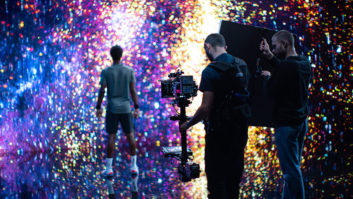BAFTA and albert have released a report into the use of climate change-related terminology on TV.
Supported by analysis from Deloitte, the study took a year’s worth of subtitling data from four broadcasters, representing 40 channels and 128,719 programmes from September 2017 to September 2018.
Deloitte compared the frequency of words like ‘carbon emissions’, ‘recycle’, ‘hybrid car’ or ‘wind power’ with words such as ‘cake’, ‘cheese’, ‘Christmas’ or ‘zombies’. ‘Climate change’ was the second-highest tracked term with 3,125 mentions, lagging behind ‘beer’(21,648), ‘dog’ (105,245), ‘tea’ (60,060) and ‘sex’ (56,307).
The research showed a preference for mentioning climate issues and problems over solutions, as references to climate change and global warming far outweighed discussion of electric cars or solar power.
Aaron Matthews, head of industry sustainability at albert, said: “To help shape society’s response to climate change we cannot rely solely on the current affairs and natural history programmes, we must think creatively and look for other ways to bring sustainability messages to our screens that are both optimistic and inspirational.
“We are setting up free training sessions for anyone working in the industry, across all genres, so we can begin to explore what a creative response to climate change could look like. I look forward to revisiting this data in a year or two, to see how things have changed.”
BAFTA chair Pippa Harris added: “The TV industry’s call to address climate change is clear. Reducing our impact is a given, but our real opportunity lies in the programmes we make, and in our ability to use powerful human stories to connect audiences with the world around them.
“We need to understand the links between climate change and society, and act strategically to ensure we do everything in our power to avert the climate crisis. Though it may seem that our future has been taken from us, history is still being created. It is time to write a different script and share it with the world.”







